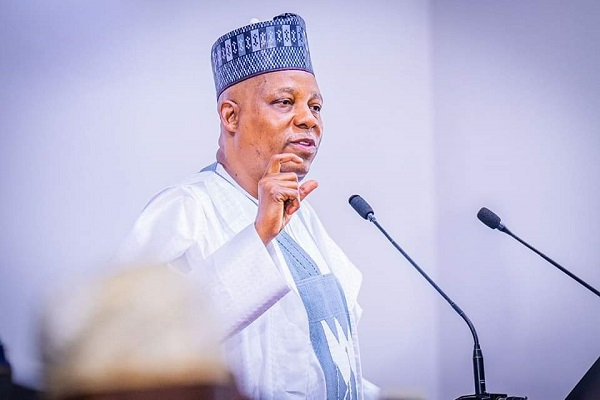When Vice President Kashim Shettima declared that Nigeria would position itself among the top 80 countries on the Human Capital Index by 2030, I found myself nodding in approval. Finally, we’re having a conversation about what really matters.
I think this is one of the most ambitious yet necessary policies we’ve seen in recent times, and my reasons aren’t far-fetched.
To be sure, the vice president’s speech wasn’t just another political rhetoric. The goals are specific, measurable, and time-bound – position Nigeria among top 80 countries on the Human Capital Index and reach a score of 0.6 by 2030. This is different from the vague promises we’re used to. This time, they might be onto something.
Human capital development is exactly what Nigeria needs right now, especially with our young, energetic population yearning for opportunities.
Come to think of it, the timing couldn’t be better. With the removal of fuel subsidy and the unification of exchange rates, we need a comprehensive strategy to ensure that ordinary Nigerians aren’t left behind in our march toward development.
Let’s put it this way: this isn’t just another government programme. The emphasis on digital literacy, gender equity, and financial accessibility shows that serious thought has gone into this strategy.
The truth is, Nigeria has never lacked good policies. What’s different this time is the holistic approach – combining healthcare, education, and financial inclusion under one comprehensive strategy.
Ok, let’s examine the core pillars – equitable and modern healthcare, inclusive education system, and financial inclusion. These aren’t just buzzwords. They’re the essential building blocks for any nation serious about development.
I particularly like the focus on digital health platforms and innovative financing. With our large population and vast territory, leveraging technology is the smart way to go.
Politicians on both sides of the divide need to support this initiative. Human capital development isn’t a partisan issue – it’s a national imperative.
Let’s even assume we achieve just 70 percent of the stated goals, that would still represent significant progress from where we are now. The key is consistent implementation.
I completely agree with the broad governance framework that brings together federal and state leaders, private sector partners, civil society, and development agencies. This is how you build sustainable programmes.
Indeed, there should be proper monitoring and evaluation. The inclusion of Monitoring, Evaluation, Accountability, and Learning (MEAL) processes shows they’ve learned from past mistakes.
Besides, we should commend the government for thinking long-term. In an era where most policies don’t outlive the administrations that created them, a 2030 target shows commitment to sustainable development.
Till we begin to invest seriously in our human capital, all our dreams of economic development will remain just that – dreams. This strategy could be the game-changer we’ve been waiting for.
The special adviser to the president on National Economic Council (NEC) and Climate Change, Rukaiya El-Rufai’s emphasis on climate change and digital transformation, is particularly forward-thinking.
These are the challenges that will shape the future, and we need to prepare our workforce accordingly.
Consequently, while sceptics might dismiss this as another government initiative, I see real potential here. The targets are ambitious but achievable with proper implementation.
The government seems to understand that sustainable human capital development requires more than just good intentions. The involvement of state governments and private sector partners suggests they’re serious about implementation.
Trust me, I understand why some Nigerians might be sceptical. We’ve seen many policies fail in the past. However, this feels different – more comprehensive, more inclusive, more practical.
For now, let’s give this initiative the benefit of the doubt while holding the government accountable for its promises. The steering committee chaired by the vice president himself shows high-level commitment.
Politicians and policymakers need to understand that this is our chance to get it right. With our population expected to hit 400 million by 2050, we can’t afford to fail at human capital development.
The truth is, Nigeria has everything it needs to succeed – a young population, abundant resources, and now, a comprehensive strategy for human capital development.
However, success ill depend on consistent implementation and monitoring. The government must resist the temptation to abandon this initiative when the going gets tough.
Consequently, all stakeholders – government, private sector, civil society – must play their part. Human capital development is a collective responsibility.
Indeed, if properly implemented, HCD 2.0 could be the catalyst that transforms Nigeria from a potential giant to an actual giant. The goals are ambitious but achievable.
For once, let’s rally behind a policy that puts people first. After all, no nation can rise above the quality of its human capital.





